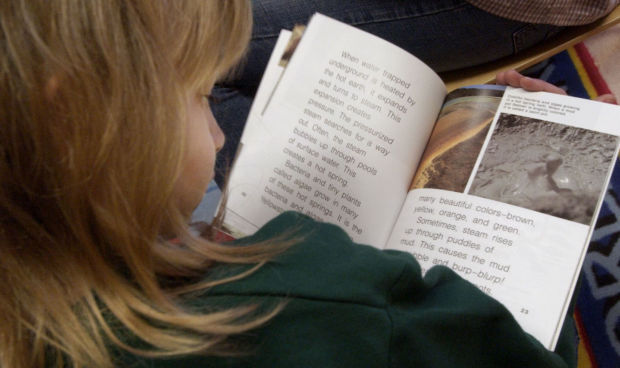PHOENIX — A referendum to kill the state’s expansion of the voucher program survived its first hurdle despite efforts of the lawyers who don’t want it going to the ballot.
State Elections Director Eric Spencer said there are more than enough signatures on petitions calling for a 2018 vote, even after he disqualified some of them. That sets the stage for county recorders to do their own verification.
Spencer rejected efforts by attorneys for those who want universal vouchers to strike even more names from the more than 110,000 submitted to call for an election.
In some cases, he said, that there is no legal basis for the objections. And in others, he told the lawyers that if they want to pursue their claims they need to make their claims to a judge — something voucher supporters already have started with a lawsuit in Maricopa County Superior Court.
They have their work cut out for them.
Spencer concluded that petitions with more than 108,000 signatures survived the first test, far more than the 75,321 that ultimately need to be found valid.
The next step is for county recorders to do a name-by-name check of a random sample that Spencer has prepared for each. But given how many above the minimum he said cleared the first hurdle, the recorders need to find that only 69.6 percent of their samples are valid.
Hanging in the balance is whether voters will get the last word on legislation to make vouchers of state money to attend private and parochial schools available to any public school student.
The vouchers, formally known as Empowerment Scholarship Accounts, were first approved in 2011 to help parents of students with disabilities who said their children cannot get the help they need in public schools.
Since then, however, supporters have nibbled away at the restrictions. Among those now eligible for vouchers are foster children, children living on reservations and those attending schools rated D or F.
SB 1431, approved with only Republican votes, eliminates any requirements.
About the only limit is that total vouchers cannot exceed about 30,000 by 2023, a provision inserted solely to get the necessary votes. But that can be removed at any time by future legislation.
If sufficient signatures on referendum petitions are determined to be valid, SB 1431 cannot take effect unless and until voters give their approval at the 2018 general election.
In doing the initial screening, Spencer’s office discarded 216 petition sheets because the required sworn affidavit of the circulator was unsigned or otherwise incomplete. Others were disqualified over problems like not having the required notary seal or the failure to have attached a copy of the measure being referred.
And more than 1,900 individual signatures were disqualified for things like missing information.
But Spencer said some of the complaints by those who want an expanded voucher program have no basis.
For example, Kory Langhofer argued that Spencer should not count anyone whose signature looks like their printed name. Langhofer, who represents Americans For Prosperity, a group funded by the Koch Brothers that supports vouchers, argued that a signature must be significantly distinguishable from a printed name to be considered a true “signature.”
Spencer rejected that argument.
“Many Arizonans use a signature that substantially mirrors their printed name,” he wrote to Langhofer in response. “As long as the petition signature matches the elector’s voter registration record, it is irrelevant how much that signature varies from the signer’s printed name for purposes of our review.”
Spencer also rebuffed Langhofer’s contention that signers must include both a city or town as well as a zip code. He said one or the other is sufficient to check the signer’s identity.
And he said there’s nothing wrong with someone using “ditto marks” to show that information about an address or date is the same as the person who signed above.
But in some cases, Spencer told Langhofer that his complaints need to be resolved by a judge.
For example, Langhofer contends that some people who were gathering signatures were doing so for money. But he charged that they had not first registered with the Secretary of State’s Office, as required by law.
To buttress his arguments, Langhofer said some of those who did not register had been paid circulators for prior petition drives. Spencer said that hardly qualifies as proof.
“The Secretary of State disagrees with your premise that simply because an individual acted as a paid circulator during a past election cycle, that individual must necessarily be acting as a paid circulator during this election cycle and therefore misrepresented his or her status as a ‘volunteer,’” Spencer wrote.
And he told Langhofer if he has actual substantiation to the contrary it is “better presented to a court of law after consideration of testimonial evidence.”
In a prepared statement, Dawn Penich-Thacker, spokeswoman for the Save Our Schools group that circulated the referendum petitions, said the organization is already anticipating a court fight. She said voucher supporters, including Americans for Prosperity and the American Federation for Children, have “a scorched-earth policy to silence the voice of Arizona voters through pricey, frivolous lawsuits and baseless legal challenges.”





